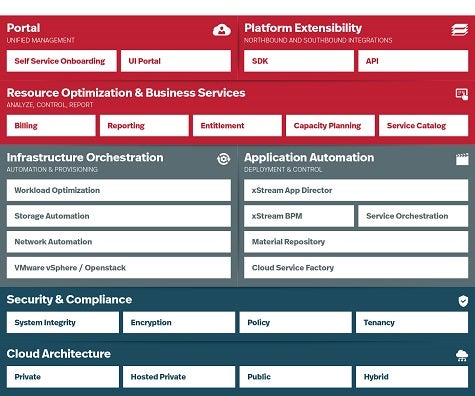At the Dell EMC World 2017 conference this week, Virtustream, the cloud service provider arm of Dell Technologies, revealed it plans to make available an on-premises edition of its cloud platform that it will centrally manage on behalf of customers.
Due out later this year, a local private cloud instance of the Virtustream cloud is part of a larger effort to expand the scope and reach of a Virtustream cloud that makes use of a proprietary cloud architecture that Virtustream developed to run ERP-class applications. As part of the effort, Virtustream this week also unfurled a version of its public cloud optimized for health care applications as part of an effort to expand its reach into vertical markets.
While Virtustream today only has a small sliver of the public cloud market, Dell Technologies is betting that given the cost efficiencies the Virtustream cloud can achieve, enterprise IT organizations will opt for a more robust and secure cloud computing environment as an alternative to Amazon Web Services and Microsoft.
Virtustream has built a public cloud that makes use of a microservices architecture to isolate application workloads. Optimized for stateful applications, Virtustream president and CTO Kevin Reid says that architecture enables Virtustream to create an on-premises edition that can be remotely managed via a control plane Virtustream layered across its cloud environment. That control plane effectively turns all the compute and storage resources into a pool of shared resources that can be managed at higher levels of abstraction. At Dell EMC World this week, Virtustream also announced that the control plane it created is now integrated to the vRealize IT automation framework developed by VMware to give internal IT organizations the ability to manage Virtustream as a natural extension of their VMware environment.
“We developed a connector for vRealize running in an on-premises environment,” says Reid.
Leveraging an alliance with VMware, a Virtustream sister company, should enable Virtustream to better make its case as an alternative to cloud platforms for enterprise-class applications developed by SAP, Oracle and IBM. But neither Virtustream nor its Dell Technologies parent are under any illusions concerning the cloud service provider’s ability to compete against AWS and Microsoft Azure. When it comes to application workloads that were not specifically designed to run in the cloud, Virtustream is making a case for employing a cloud platform designed for existing enterprise applications versus so-called cloud native applications. Given the relatively small percentage of enterprise applications running in the cloud today, the one thing that is for certain is that despite the level of competition, most of the enterprise applications in the age of the cloud are still up for grabs.



